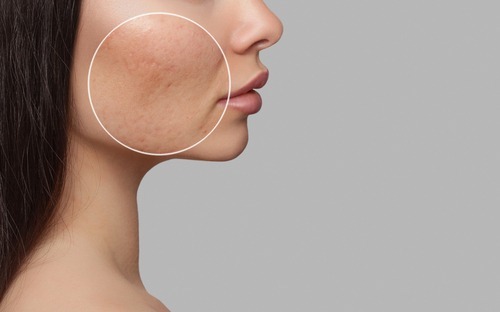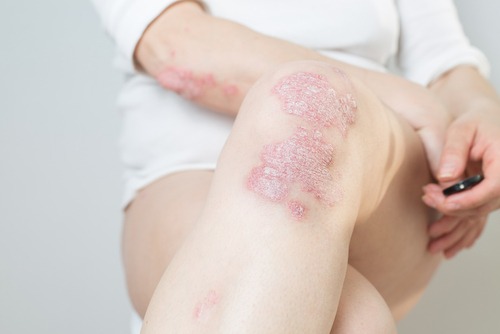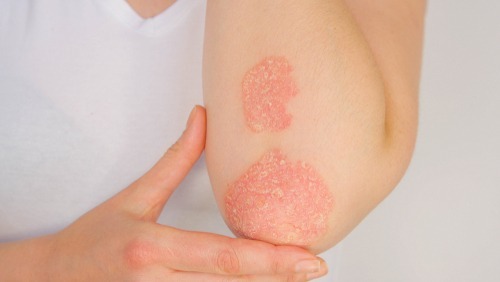Hyperpigmentation
 Hyperpigementation can be address with a number of non-surgical treatment options. At the time of pre-op consultation, the treatment provider will discuss various treatment alternatives with the patient and help them make the right choice
Hyperpigementation can be address with a number of non-surgical treatment options. At the time of pre-op consultation, the treatment provider will discuss various treatment alternatives with the patient and help them make the right choice
Reger Vein and Skin Specialists, led by the accomplished Dr. Gregg Reger, provides medical spa treatments for hyperpigmentation to patients in Spring, TX, The Woodlands, and surrounding communities and cities in the illustrious state of Texas.
Types of Treatments
- Topical Medication
A dermatologist may recommend topical applications containing alpha hydroxyl acid for the treatment of hyperpigmentation. The FDA has approved only Hydroquinone for skin lightening. This is the most frequently prescribed topical treatment.
Kojic acid is a fungus derivative which works similar to hydroquinone. Azelaic acid was developed for the treatment of acne, but it is also useful on hyperpigmentation. Mandelic acid, which is an almond derivative, may also be used for treating various forms of hyperpigmentation.
- Non-Ablative Remedies
For several people with serious hyperpigmentation, topical meds may not be able to offer an effective solution. The dermatologist may prescribe specific non-ablative treatments for severe hyperpigmentation.
They might recommend skin peels such as salicylic acid to lighten the darkened patches of skin. Intense Pulsed Light technology utilizes different light wavelengths to treat dark skin patches. Laser skin resurfacing is also a procedure that uses lasers to eliminate pigmentation due to melanin.
- Microdermabrasion
This aesthetic treatment removes layers of the skin eliminating the layer which contains the pigmentation. This procedure can lead to internal bleeding in the skin and is a very intricate procedure. It is vital that a skilled technician administers this treatment.
- Combined Treatments
Hyperpigmentation lightening can occur with one of the topical agents previously named. But a treatment combining topical gels and creams, sunscreens, and chemical peels may be required for noticeable improvement. According to studies, a combination of topical tretinoin treatment and salicylic acid peels is more effective than either treatment by itself.
As per another study, glycolic acid in combination with a modified Kligman formula of hydroquinone 2 percent, hydrocortisone 1 percent, and tretinoin 0.05 percent is especially beneficial in postinflammatory hyperpigmentation in the face for dark-skinned individuals.
- Preventive Measures
If a person is genetically prone to developing hyperpigmentation, it is advisable to undertake preventive measures.
These measures include:
- Using a sunscreen for protection against UV radiation which is the main reason for hyperpigmentation.
- Avoid getting tanned by wearing long-sleeved clothing and sunglasses.
- Refrain from bursting pimples, rashes as well as other skin eruptions.
- Consume good amounts of vitamin C in the diet.
- Avoid lotions, creams, and facial products that may cause a burning sensation.
- Avoid applying excessive makeup, specifically on the treatment site(s). It can make the pigmentation less noticeable but maybe be damaging to the skin.
- Consult a dermatologist to discuss the appearance of hyperpigmentation as well as share previous health history.
- Avoid choosing treatments that may cause scarring.
- Prevent acne by providing the skin with appropriate care.
You need to take necessary precautions while stepping out in the sun by covering up as much skin as possible. Additionally, you can use a high strength sunscreen available. The dignified Dr. Gregg Reger receives patients from Spring, TX, The Woodlands, and nearby areas across the landscape for hyperpigmentation medical spa treatments.
For More Information contact Reger Vein and Skin Specialists in The Woodlands, TX
For more information on procedures and treatments offered by Board Certified Phlebologist Dr. Gregg Reger at Reger Vein and Skin Specialists please call 832-585-0090 or click here to contact our team. Helping patients in Houston, The Woodlands, Springs, Katy and other surrounding areas of Texas.
Psoriasis
 It can be challenging to find the right psoriasis treatment or a combination of treatments. What works for one individual may not be suitable for another.
It can be challenging to find the right psoriasis treatment or a combination of treatments. What works for one individual may not be suitable for another.
Therefore, it is vital to understand the latest treatments as well as work with the doctor to identify the best treatment plan that mitigates or eliminates the psoriasis symptoms.
Reger Vein and Skin Specialists, led by Dr. Gregg Reger, provides advanced skin care and medical spa treatments to patients in Spring, TX, The Woodlands, and surrounding communities.
Biologics
Biologic medications, or biologics, are usually prescribed for moderate to severe psoriasis and psoriatic arthritis that has been unresponsive to other treatments. Biologics are administered by intravenous (IV) infusion or injection.
The biologics used to treat psoriatic disease obstruct the action of a particular type of immune cell known as a T cell, or block proteins in the immune system, such as interleukin 17-A, interleukins 12 and 23, or tumor necrosis factor-alpha (TNF-alpha).
These proteins and cells all play a significant role in the development of psoriasis and psoriatic arthritis.
Systemics
Systemic treatments are prescription medicines that are taken by mouth or injection. These drugs work throughout the body. Systemics are usually prescribed for moderate to severe psoriasis and psoriatic arthritis.
These drugs are also used in patients who are unresponsive or unable to take UV light therapy or topical medications.
Phototherapy
Phototherapy, also called light therapy, involves the exposure of the skin to ultraviolet light on a routine basis under medical supervision.
Phototherapy is administered in a physician’s office, psoriasis clinic or at home using a phototherapy unit. Consistency is the key to success with this therapy.
UVB Phototherapy
Ultraviolet B (UVB) is present in natural sunlight, and it is an effective treatment for psoriasis. UVB goes into the skin and slows the development of affected skin cells. This treatment involves exposing the skin to an artificial UVB light source for a specified duration on a routine basis.
New Oral Treatments
New oral treatments inhibit specific molecules associated with swelling to improve the symptoms of psoriatic disease. These treatments can be delivered orally, unlike biologics which are derived from living sources and need to be administered by infusion or injection.
New oral treatments are small molecule drugs that are taken orally. These drugs precisely target molecules within immune cells, unlike earlier pills used for psoriasis and psoriatic arthritis.
These treatments correct the overactive immune reaction that leads to inflammation in individuals with psoriasis and psoriatic arthritis by adjusting the complex processes of swelling with the cell. This improves the scaliness and redness along with inflammation and joint tenderness.
Topicals
Topical treatments are usually the first treatment recommended to a newly diagnosed individual. These medications are applied directly to the skin and can be purchased OTC or by prescription.
There are various effective topical treatments for psoriasis. Many of these medications can be procured OTC while others are only available by prescription.
Corticosteroids, or merely “steroids,” are the most commonly used treatment for psoriasis. They are called anti-inflammatory agents as they reduce the inflammation and redness of lesions. Prescription topical treatments to manage psoriasis lesions also include anthralin, synthetic vitamin D3, and vitamin A.
Reger Vein and Skin Specialists receives patients from Spring, TX, The Woodlands, and nearby areas for safe and proven skin care and medical spa treatments.
For More Information contact Reger Vein and Skin Specialists in The Woodlands, TX
For more information on procedures and treatments offered by Board Certified Phlebologist Dr. Gregg Reger at Reger Vein and Skin Specialists please call 832-585-0090 or click here to contact our team. Helping patients in Houston, The Woodlands, Springs, Katy and other surrounding areas of Texas.
Skin Hyperpigmentation
 Hyperpigmentation is typically a benign condition in which specific skin areas darken in comparison to the surrounding healthy skin. This condition appears when surplus melanin (the brown pigment that offers the skin its color) creates deposits on the skin.
Hyperpigmentation is typically a benign condition in which specific skin areas darken in comparison to the surrounding healthy skin. This condition appears when surplus melanin (the brown pigment that offers the skin its color) creates deposits on the skin.
Specific types of pigmentation, such as those caused by acne, may lighten by themselves over time without any treatment. But several instances of discoloration need treatment with effective, active ingredients and non-invasive in-office procedures to remove these spots on the skin’s surface.
Reger Vein and Skin Specialists, led by Dr. Gregg Reger, provides medical spa treatments for hyperpigmentation to patients in Spring, TX, The Woodlands, and surrounding communities across the horizon.
Microdermabrasion for Minimal Darkness
In microdermabrasion, the uppermost skin layer is gently removed to treat sunspots, darkness, and various other types of superficial and minimal pigmentation. Certain microdermabrasion treatments include an extra step. In this step, specialized anti-pigmentation ingredients are applied to the skin to create a more dazzling effect.
Chemical Peels for Stubborn Spots
The treatment provider may offer the patient salicylic acid, TCA, and glycolic acid chemical peels to treat discoloration. Chemical peels are very effective in offering rapid outcomes and eliminating deeper pigment. The provider can change the strength of the chemical peels to the appropriate type and depth of procedure. However, a chemical peel is not suitable for every type of skin and color. The patient should seek other options if their skin scars easily.
Intense Pulsed Light (IPL) for Discoloration from the Sun
IPL is a popular alternative to treat skin discoloration due to the sun. This procedure entails the pulsing of light-based energy onto the skin while treating blood vessels simultaneously. The light detects skin discoloration and eliminates it. IPL may cause the treatment sites to become darker and flake after some days.
Fractional Laser for Stubborn Discoloration
Fractional laser is one of the most effective options available for treating stubborn skin pigmentation. State-of-the-art laser techniques inflict safe and controlled micro-injuries to the skin. These injuries trigger the skin’s healing process. This leads to a decrease in the discoloration revealing younger, brighter skin.
Obagi for Less Intensive Treatment
Obagi prescription skin care products are an excellent alternative for patients who seek a less intensive and non-invasive treatment with no downtime. Obagi has a wide skincare range that is available on prescription from a dermatologist.
Other Treatment Options
A combination of OTC topical skincare products containing active ingredients (such as soy or niacinamide) may help brighten the skin and are ideal for everyday usage. Using a broad-spectrum sunscreen with an SPF of 30 or more is certainly recommended to prevent further skin discoloration.
The provider can individualize the treatment plan for a patient depending on the severity and extent of the hyperpigmentation and their skin tone. The treatment may entail one therapy or a combination of multiple therapies.
Honorable Dr. Gregg Reger receives patients from Spring, TX, The Woodlands, and other towns and suburbs in this majestic state of Texas for hyperpigmentation medical spa treatments.
For More Information contact Reger Vein and Skin Specialists in The Woodlands, TX
For more information on procedures and treatments offered by Board Certified Phlebologist Dr. Gregg Reger at Reger Vein and Skin Specialists please call 832-585-0090 or click here to contact our team. Helping patients in Houston, The Woodlands, Springs, Katy and other surrounding areas of Texas.
Psoriasis
 Psoriasis is not just a “skin condition.” It actually manifests underneath the skin. Psoriasis is a chronic or long-lasting condition of the immune system that can range from mild to severe.
Psoriasis is not just a “skin condition.” It actually manifests underneath the skin. Psoriasis is a chronic or long-lasting condition of the immune system that can range from mild to severe.
At times, psoriasis may be associated with diseases such as psoriatic arthritis, Type 2 diabetes, and cardiovascular disease.
Reger Vein and Skin Specialists, led by Dr. Gregg Reger, provides psoriasis treatment and other medical spa procedures to patients in Spring, TX, The Woodlands, and surrounding communities.
How Psoriasis Develops
The symptoms of psoriasis that appear on the surface of the skin are just a part of the story. With healthy skin, the body takes nearly 28 to 30 days to produce new skin cells and shed the old ones.
If an individual suffers from plaque psoriasis, the immune system becomes overactive. This causes skin inflammation and leads to the skin cells being produced faster than normal. The new skin cells are pushed to the skin’s surface in three to four days instead of the standard 28 to 30 days.
But the body cannot shed the new skin cells at such a rapid rate. This causes the old, dead skin cells to collect over each other as new cells are being produced rapidly.
The fast production of new skin cells causes the old ones to be pushed to the skin’s surface. This creates thick, red, itchy, and flaky patches known as plaques.
But the exact reason for psoriasis is unknown.
Psoriasis Types
Many individuals are not aware that there are various forms of psoriasis. However, a patient typically has one type of the condition at a time. Every type of psoriasis has distinct symptoms and can appear on the skin in multiple ways.
It is vital to understand and share with other individuals that regardless of the location of psoriasis on the body or what it looks like, it is not contagious.
Plaque Psoriasis
This type of psoriasis is characterized by raised, swollen, red lesions that are covered by silvery white scales. Plaque psoriasis typically manifests on the lower back, knees, scalp, and elbows. This type of psoriasis is most commonly occurring, and 80 percent of all psoriasis patients have this type.
Guttate Psoriasis
Guttate psoriasis often starts in childhood or young adulthood. This type of condition occurs as small, pink, individual spots on the torso, arms, and legs. These spots are usually not as thick as plaque lesions.
Inverse Psoriasis
Inverse psoriasis manifests in areas such as the armpits, groin, under the breasts and others folds such as the genitals and butt. This form of psoriasis appears as bright-red lesions that are smooth and shiny.
Pustular Psoriasis
Pustular psoriasis usually develops in adults and is characterized by the presence of blisters of non-infectious pus surrounded by red skin. It can be localized to a specific body area such as the hands and feet, or be spread over a larger part of the body.
Erythrodermic Psoriasis
This is a particularly inflammatory form of psoriasis that affects most of the body’s surface. It is characterized by the presence of periodic, pervasive, red skin, and the shedding of scales in sheets.
Psoriasis and Joint Pain
In case a patient has psoriasis and suffers from pain, swelling, or stiffness in and around their joints, they may be experiencing symptoms of a condition associated with psoriasis, known as psoriatic arthritis.
Dr. Gregg Reger receives patients from Spring, TX, The Woodlands, and nearby areas for psoriasis and other medical spa treatments.
For More Information contact Reger Vein and Skin Specialists in The Woodlands, TX
For more information on procedures and treatments offered by Board Certified Phlebologist Dr. Gregg Reger at Reger Vein and Skin Specialists please call 832-585-0090 or click here to contact our team. Helping patients in Houston, The Woodlands, Springs, Katy and other surrounding areas of Texas.
Psoriasis
 Psoriasis leads to the appearance of red, scaly patches on the skin. These patches may appear as a rash, so a person may worry that they could get it from someone else or pass it onto other people.
Psoriasis leads to the appearance of red, scaly patches on the skin. These patches may appear as a rash, so a person may worry that they could get it from someone else or pass it onto other people.
However, this condition is not contagious, and a person cannot catch the disease by touching someone who has it.
Reger Vein and Skin Specialists, led by Dr. Gregg Reger, provides psoriasis treatment and other medical spa procedures to patients in Spring, TX, The Woodlands, and surrounding locations.
What Causes Psoriasis?
Psoriasis symptoms appear on the skin, but the condition is actually a problem with the immune system, known as an autoimmune disease. It means that the defenses of the body overreact or react at the wrong time, which impacts the body from within and externally.
In people with psoriasis, the immune systems cause skin cells to grow much more rapidly than normal. They accumulate too fast and form thick, scaly lesions.
There are various types of the condition, but the most commonly occurring form of psoriasis is plaque psoriasis. Lesions usually develop on the elbows, knees, or scalp. However, they can appear anywhere on the body.
These patches can feel itchy, inflamed, and sore and may crack and bleed. Other forms of the condition may cause tiny red-spots, red scaling patches, or pus-filled bumps.
How Do People Get Psoriasis?
Scientists are aware that specific genes are linked to psoriasis. Therefore, a person is more likely to develop this condition if someone in their family has psoriasis.
Even if a person has genes that predispose them to psoriasis development, they will need something that wakes up, or triggers, their condition. It may be something physical, like a scratch, cut, infection, or a bad sunburn.
Other common triggers are certain drugs, stress, and cold weather (which can lead to dry, cracked skin). However, being around a person with psoriasis will not trigger this condition.
Upon being triggered, psoriasis becomes a chronic or long-lasting condition. This implies that most individuals will have it for the remainder of their lives, but they may be able to manage it with medicines and other treatment.
What about Physical Contact?
Doctors often confused psoriasis with leprosy before they knew the reasons for its development. People with this condition were thought to be contagious.
However, now we know that psoriasis cannot develop by brushing up against someone who has the condition. A person can also not develop this condition from sexual activity, kissing, or swimming in the same water.
Individuals develop psoriasis due to their genes, not because of poor hygiene, diet, and lifestyle, or any other behaviors. They did not acquire it from another person, and cannot pass it onto others.
Despite this, a lot of stigma surrounds the condition. This can be hard for individuals who have psoriasis. They may feel ill at ease when people stare at their lesions or avoid touching them, and may try to conceal their outbreaks under loose, long clothing.
People with psoriasis can end the confusion and misunderstandings about the condition by talking freely with family, friends, and colleagues. If you know someone who has it, ensure that they know that their condition does not impact your opinion of them or make you not want to be around them.
Dr. Gregg Reger receives patients from Spring, TX, The Woodlands, and nearby areas for psoriasis and other medical spa treatments.
For More Information contact Reger Vein and Skin Specialists in The Woodlands, TX
For more information on procedures and treatments offered by Board Certified Phlebologist Dr. Gregg Reger at Reger Vein and Skin Specialists please call 832-585-0090 or click here to contact our team. Helping patients in Houston, The Woodlands, Springs, Katy and other surrounding areas of Texas.
Psoriasis Treatment
 There is no known cure for psoriasis to date. But there are various approaches to get relief from the symptoms of this troublesome condition. Many patients experience that psoriasis flares up and then disappears again.
There is no known cure for psoriasis to date. But there are various approaches to get relief from the symptoms of this troublesome condition. Many patients experience that psoriasis flares up and then disappears again.
The triggers of this condition include stress, dry air, skin injuries, specific medications, infections, excessive or too little sun, consuming too much alcohol, smoking, and cold weather.
Reger Vein and Skin Specialists, led by Dr. Gregg Reger, provides advanced skin care and medical spa treatments to patients in Spring, TX, The Woodlands, and surrounding locations.
How do Dermatologists treat Psoriasis?
People with psoriasis can consult a qualified dermatologist for a customized treatment plan. The dermatologist will consider the below mentioned aspects when developing this plan:
- Type of psoriasis that the patient has
- Location of psoriasis on the body
- Impact of psoriasis on the patient’s life
- The severity of the psoriasis
- Any other health conditions that they may have
The treatment plan may include topical medicines, skin care advice, and recommendations to prevent outbreaks.
The treatment for most cases of psoriasis include medications that are applied directly to the skin, such as creams, dandruff shampoos, ointments, moisturizers, drugs containing vitamin A or vitamin D.
If the patient has severe psoriasis, they may require medicines to suppress the immune response of the body. These medications include cyclosporine or methotrexate. In addition, drugs called “biologics” are also used to manage the immune response of the body.
These medications may include Infliximab (Remicade), Adalimumab (Humira), and Etanercept (Enbrel).
Phototherapy for Psoriasis Treatment
Phototherapy refers to a medical treatment which involves the cautious exposure of the skin to UV light. Phototherapy, also known as light therapy, involves exposing skin to UV rays on a regular basis under medical supervision.
These treatments are undertaken in a physician’s office, psoriasis clinic or at home with phototherapy unit. This type of treatment is most effective when received in a consistent way.
UVB Phototherapy
Ultraviolet B (UVB) is present in natural sunlight, and it is an effective psoriasis treatment. UVB penetrates the skin and delays the development of impacted skin cells.
This treatment involves the exposure of the skin to an artificial UVB light source for a specific duration on a routine basis. This treatment is performed at home or in a medical setting.
If UVB is administered along with systemic treatments, it may enhance the efficacy significantly and enable lower doses of the systemic medication to be used.
Excimer Laser Treatment
The Food and Drug Administration (FDA) has recently approved excimer laser for the treatment of chronic, localized psoriasis plaques.
This laser targets precise areas of skin affected by mild to moderate psoriasis by delivering a high-intensity beam of ultraviolet light B (UVB). Studies indicate that this treatment is particularly effective for scalp psoriasis.
Patients will have varying responses to this treatment. It may take between four to ten sessions to see results, depending on the specific case of psoriasis.
Reger Vein and Skin Specialists receives patients from Spring, TX, The Woodlands, and nearby areas for safe and proven skin care and medical spa treatments.
For More Information contact Reger Vein and Skin Specialists in The Woodlands, TX
For more information on procedures and treatments offered by Board Certified Phlebologist Dr. Gregg Reger at Reger Vein and Skin Specialists please call 832-585-0090 or click here to contact our team. Helping patients in Houston, The Woodlands, Springs, Katy and other surrounding areas of Texas.
Scalp Itch Types & Treatments
 An itchy scalp can make it difficult to focus on anything else. While it may feel as if the itch will never stop, it is possible to get relief. Eliminating the itch starts by identifying why the scalp itches.
An itchy scalp can make it difficult to focus on anything else. While it may feel as if the itch will never stop, it is possible to get relief. Eliminating the itch starts by identifying why the scalp itches.
Reger Vein and Skin Specialists, led by Dr. Gregg Reger, provides advanced medical spa treatments to patients in Spring, TX, The Woodlands, and surrounding locations.
Causes and Solutions
Following are a few reasons for an itchy scalp as well as dermatologists’ advice on how to get relief:
Dandruff
A dry and itchy scalp along with flakes on the hair or clothing may be dandruff.
Getting Relief
People with dandruff should use dandruff shampoo and scalp treatment.
Reaction to a Hair Care Product
A flaky, dry, and itchy scalp may indicate that there might be shampoo residue on the hair and scalp. If shampoo remains on the scalp, it can cause irritation.
A rash and itchy scalp may be a symptom of a condition known as allergic contact dermatitis. This commonly occurs in people who use hair dye. The culprit often is a component in the dye known as para-phenylenediamine (PPD), which is usually found in black hair dyes.
Getting Relief
The patient should stop using the product that is causing the reaction. In case it is challenging to identify it, a board certified dermatologist can help.
Hives
Hives are elevated, red, and very itchy bumps that can develop in any location on the skin, including the scalp. These red bumps tend to come and clear within a few hours. At times, hives go away and recur. In case hives come and go for over six weeks. These are known as chronic (long-lasting) hives.
Getting Relief
Hives usually resolve on their own. However, if they are long-lasting, then treatment can help. Dermatologists usually treat hives.
Scabies
Scabies develops due to a small bug known as human itch mite. Upon burrowing into the scalp, the scalp may become very itchy. Itch is the most commonly occurring symptom of scabies. It can be so intense that it may keep the patient awake at night.
Getting Relief
A board certified dermatologist or primary care doctor can diagnose scabies. People who have scabies will need treatment, which is only available with a physician’s prescription.
Scalp Ringworm
Ringworm does not occur due to worms. Rather, it is an infection that develops because of a fungus. People who have ringworm on their scalp will likely experience a red and very itchy rash.
Getting Relief
In order to get relief from ringworm, the patient will need an accurate diagnosis and treatment. The treatment of ringworm on the scalp requires prescription medicines. Therefore, the patient should consult a board certified dermatologist for treatment.
Scalp Psoriasis
Approximately 50 percent of individuals who have plaque psoriasis experience a flare-up on the scalp at some point. The patient may have reddish patches, silvery-white scale, dandruff-like flaking, and a dry scalp. Scalp psoriasis is usually itchy, and the itch can range from mild to intense.
Getting Relief
Various treatments are available for scalp psoriasis. Medicated shampoos or other treatments that the patient can purchase without a prescription may offer relief.
Dr. Gregg Reger of Reger Vein and Skin Specialists receives patients from Spring, TX, The Woodlands, and nearby areas for safe and proven medical spa treatments.
For More Information contact Reger Vein and Skin Specialists in The Woodlands, TX
For more information on procedures and treatments offered by Board Certified Phlebologist Dr. Gregg Reger at Reger Vein and Skin Specialists please call 832-585-0090 or click here to contact our team. Helping patients in Houston, The Woodlands, Springs, Katy and other surrounding areas of Texas.
Cellulite Reduction
Bumpy cellulite on the surface of the skin can adversely impact the aesthetics and make a person appear older than their years.
Venus Legacy can effectively treat stubborn cellulite. This procedure is an innovative and revolutionary non-surgical skin tightening technique.
Reger Vein and Skin Specialists, led by Dr. Gregg Reger, provides Venus Legacy and other medical spa treatments to patients in Spring, TX, The Woodlands, and surrounding communities.
Venus Legacy
Dr. Reger provides the cutting-edge Venus Legacy system. This highly effective and safe non-surgical treatment helps reduce the appearance of cellulite.
This system is a unique combination of multi-polar radiofrequency (RF) and pulsed magnetic fields that target underlying fat without causing damage to the surface of the skin.
Upon penetrating the deeper layers of the skin, this blend of energies delivers controlled heat in the underlying tissue to create a coagulating effect.
Targeted thermal exposure helps tighten existing collagen fibers as well as promotes the generation of new collagen in the deeper skin layers.
The appearance of cellulite on the surface diminishes as the collagen production and volumizing occur from within. The time taken for a Venus Legacy session is between 30 to 40 minutes.
A majority of patients tolerate the treatment well and compare it to a hot-stone massage on the skin. Ideal Venus Legacy candidates also benefit from the minimal risk of complications or downtime associated with the treatment.
Dr. Reger and his medical team also offer an array of services for men to target the appearance of cellulite and mitigate other skin and aesthetic issues.
How does it work?
The Venus Legacy procedure for cellulite reduction combines the innovative VariPulse non-surgical body contouring technology with the patented MP2 technology.
This unique combination uses multi-polar radiofrequency as well as pulsed magnetic fields to reach the deeper dermal layers of the skin and address signs of aging and damage from within.
The thermal energy in the deeper layers of the dermis generates instantaneous as well as long-term outcomes. It tightens weakened collagen fibers for an instant effect, and the heat energy encourages the production of fresh collagen fibers.
These new fibers will progressively enhance the appearance of the skin over time in a natural way.
Benefits of Venus Legacy Treatment
The Venus Legacy system not only helps get rid of stubborn cellulite, but it can also be helpful in the:
- Elimination of stubborn fatty pockets
- Skin volumizing and tightening
- Reduction of cellulite
- Inch-loss to the waistline
Recovery
After the Venus Legacy procedure, the treated areas may appear slightly flushed or pink. However, this unique combination of energies does not impact the skin surface or tissues. Consequently, it does not involve any specific downtime.
While severe side-effects are rare, the treatment provider will explain all safety aspects to the patient at the time of the initial consultation. Dr. Gregg Reger receives patients from Spring, TX, The Woodlands, and nearby areas for Venus Legacy and other medical spa treatments.
For More Information contact Reger Vein and Skin Specialists in The Woodlands, TX
For more information on procedures and treatments offered by Board Certified Phlebologist Dr. Gregg Reger at Reger Vein and Skin Specialists please call 832-585-0090 or click here to contact our team. Helping patients in Houston, The Woodlands, Springs, Katy and other surrounding areas of Texas.
Hyperpigmentation Treatment
 The main reason behind hyperpigmentation is essentially the surplus production of melanin by the body’s melanocyte cells. Various factors stimulate the abnormal rise in the production of melanin. At the time of initial consultation, the treatment provider will explain the potential causes of this condition.
The main reason behind hyperpigmentation is essentially the surplus production of melanin by the body’s melanocyte cells. Various factors stimulate the abnormal rise in the production of melanin. At the time of initial consultation, the treatment provider will explain the potential causes of this condition.
Reger Vein and Skin Specialists, led by Dr. Gregg Reger, provides medical spa treatments for hyperpigmentation to patients in Spring, TX, The Woodlands, and surrounding locations.
Key Causes
Some of the most common reasons for the production of surplus melanin resulting in hyperpigmentation are as follows:
- Inflammation Due to Sunlight
Everyone knows that sunlight darkens the skin. However, tanning may not lead to evenly tanned skin. For several people, tanning can cause hyperpigmentation. When the skin is exposed to the ultraviolet radiation of the sun, it generates an inflammatory response. This response occurs immediately on sun exposure.
However, the levels are so negligible that it is not noticeable. If the sun exposure is prolonged, then the level of inflammation increases. Such inflammation in response to sun exposure is the primary reason behind the production of melanin in the skin.
- Skin Damage
The skin can sustain damage from anything ranging from a cut to acne. This leads to surplus melanin production. If the skin receives any damage, the body copes with it by initiating an inflammatory response.
This response causes the melanocytes in the skin to activate. Other than an inflammatory response, when the skin is injured, it may be unable to reproduce the skin pigments that were previously there.
- Allergic Reactions
When the body experiences an allergic reaction, the skin may undergo an inflammatory response. If the individual is severely allergic to something, the body may go into overdrive when it comes into contact with that matter.
This leads to skin irritation. There are significant chances of the skin displaying inflammatory reactions. For instance, poison ivy could activate melanocyte cells leading to hyperpigmentation.
- Medication
There are various medications which may have hyperpigmentation as a side-effect. Antibiotics, hormone meds, topical retinoids, non-steroidal drugs, anti-seizure medications, and chemotherapeutic medicines may lead to hyperpigmentation.
Again, medications may lead to hormonal changes in the body that could cause melanocyte cells to activate. There is a surplus production of melanin once the cells are activated. Numerous medications which have to be taken perforce may have hyperpigmentation as a side-effect.
- Hormonal Change
An increase in progesterone and estrogen levels usually due to pregnancy or taking birth control pills can be a cause of hyperpigmentation. Such hormonal changes can lead to more melanin production. The condition where the body produces more melanin due to progesterone or estrogen is called melasma. For several women, hyperpigmentation resolves after the pregnancy. However, this may not be the case for everyone.
- Genetics
For several people, DNA influences the presence of hyperpigmentation. Hyperpigmentation is genetic, but it may skip generations. If a family member has severe hyperpigmentation, then the chances of a person acquiring it are high.
Dr. Gregg Reger receives patients from Spring, TX, The Woodlands, and nearby areas for hyperpigmentation medical spa treatments.
For More Information contact Reger Vein and Skin Specialists in The Woodlands, TX
For more information on procedures and treatments offered by Board Certified Phlebologist Dr. Gregg Reger at Reger Vein and Skin Specialists please call 832-585-0090 or click here to contact our team. Helping patients in Houston, The Woodlands, Springs, Katy and other surrounding areas of Texas.
Restylane
 Restylane dermal filler currently ranks among the most popular cosmetic skin care non-surgical procedures. This injectable anti-aging filler has been approved by the FDA, and is in use worldwide for more than 10 years. Compared to many other cosmetic invasive and non-invasive procedures designed for facial rejuvenation, Restylane injections will usually prove to be more cost-effective.
Restylane dermal filler currently ranks among the most popular cosmetic skin care non-surgical procedures. This injectable anti-aging filler has been approved by the FDA, and is in use worldwide for more than 10 years. Compared to many other cosmetic invasive and non-invasive procedures designed for facial rejuvenation, Restylane injections will usually prove to be more cost-effective.
At the time of initial consultation, the filler provider will educate the patient about all aspects of Restylane treatment, including its estimated costs. The provider’s first concern will be to ensure that the patient understands the benefits and limitations of Restylane and is able to make a fair cost and benefit comparison with other medical spa treatment options.
The percipient and successful Dr. Gregg Reger of Reger Vein and Skin Specialists provides Restylane injections to patients in Spring, TX, The Woodlands, and surrounding locations.
Financial Factors
The price of Restylane cosmetic skin care procedure can differ between two practices due to a number of factors.
Practice Location
The average cost of living of a region is influenced by its real estate costs, median household income, local taxation and other factors. Practices located in main metropolitan areas or prime urban centers will usually have higher overhead expenses compared to a practice located in a small town in an interior region. This will impact the actual cost of services offered by the practice.
Quality Standards
The quality standards and best practices maintained by a practice are likely to affect the overall costs of different procedures to some extent. A practice equipped with cutting edge technology and offering a state of the art treatment environment with personalized care and services, and supported by experienced staff members may charge more than another practice offering relatively basic standards of care.
Extent of Treatment
Cosmetic requirements of each patient are unique. The costs of Restylane can vary according to the amount of surface area of the face to be treated. A treatment provider may charge according to the specific area to be treated, or on the basis of the number of syringes or volume units required for a particular patient.
Other Factors
Sometimes the manufacturer may offer a special rebate on Restylane for a limited time period, or the medical spa may be running a promotion on dermal fillers. Alternatively, some providers may offer a special package price if the patient chooses Restylane in combination with other treatments. Therefore, costs for each individual patient can vary depending on the situation.
Insurance and Financing
Restylane soft tissue filler treatment is typically used as an elective cosmetic procedure, which will not be covered by health insurance. However, the patient will have an option to get the treatment financed if they do not want to make the full payment upfront.
Patients should consider financing through professional medical care finance firms which offer competitive loans along with quick loan approvals, lower interest rates and easy monthly installments of up to 60 months. The committed and accomplished Dr. Reger receives patients from Spring, TX, The Woodlands, and other cities and communities in the powerful state of Texas for Restylane dermal filler injections.
For More Information contact Reger Vein and Skin Specialists in The Woodlands, TX
For more information on procedures and treatments offered by Board Certified Phlebologist Dr. Gregg Reger at Reger Vein and Skin Specialists please call 832-585-0090 or click here to contact our team. Helping patients in Houston, The Woodlands, Springs, Katy and other surrounding areas of Texas.


